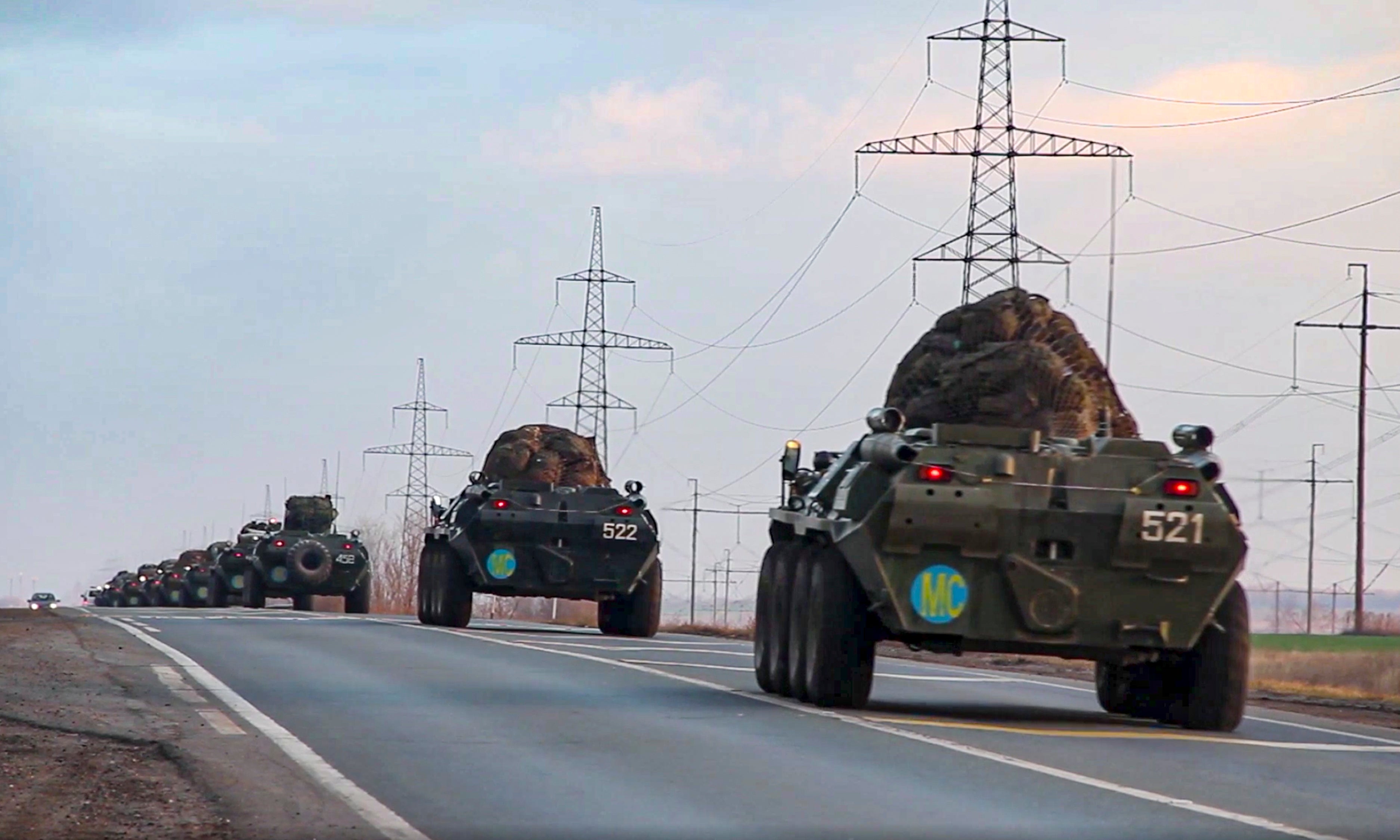Russian peacekeepers go to Nagorno-Karabakh to bolster truce
A dozen planes filed with Russian peacekeepers are headed for Nagorno-Karabakh, hours after Armenia and Azerbaijan agreed to halt fighting over the separatist region

Your support helps us to tell the story
From reproductive rights to climate change to Big Tech, The Independent is on the ground when the story is developing. Whether it's investigating the financials of Elon Musk's pro-Trump PAC or producing our latest documentary, 'The A Word', which shines a light on the American women fighting for reproductive rights, we know how important it is to parse out the facts from the messaging.
At such a critical moment in US history, we need reporters on the ground. Your donation allows us to keep sending journalists to speak to both sides of the story.
The Independent is trusted by Americans across the entire political spectrum. And unlike many other quality news outlets, we choose not to lock Americans out of our reporting and analysis with paywalls. We believe quality journalism should be available to everyone, paid for by those who can afford it.
Your support makes all the difference.A dozen planes filed with Russian peacekeepers headed for Nagorno-Karabakh on Tuesday, hours after Armenia and Azerbaijan agreed to halt fighting over the separatist region and amid signs this cease-fire would hold where others hadn't.
The truce came after significant advances by Azerbaijani forces that the Nagorno-Karabakh leader said made it impossible for their side to carry on — but angered many Armenians, who stormed government buildings overnight, demanding the Parliament invalidate the agreement. Dozens of protesters gathered again Tuesday morning in front of the parliament building in the Armenian capital of Yerevan.
Armenia and Azerbaijan have been locked in a conflict over Nagorno-Karabakh for decades. The region lies within Azerbaijan but has been under control of ethnic Armenian forces backed by Armenia since a separatist war there ended in 1994. Heavy fighting erupted in late September — the biggest escalation of the conflict in a quarter-century — and has left hundreds, possibly thousands, dead.
Several cease-fires announced over the past six weeks crumbled almost immediately, but the current agreement appeared to be holding, with neither side reporting any more fighting since it came into force.
It came days after Azerbaijan pressed its offensive deeper into the region and took control of the city of Shushi, which is strategically positioned on heights overlooking the regional capital of Stepanakert.
Armenian Prime Minister Nikol Pashinian said on Facebook that calling an end to the fight was “extremely painful for me personally and for our people."
But on Tuesday he explained that he was left with no choice, saying the army had told him it was necessary.
“We found ourselves in a situation when there was no alternative to signing the agreement,” Pashinian was quoted by Russia's Interfax news agency as saying.
Nagorno-Karabakh’s separatist leader Arayik Harutyunyan echoed Pashinian’s sentiment. He said: "Had the hostilities continued at the same pace, we would have lost all of Artsakh (an Armenian name for Nagorno-Karabakh) within days.”
Azerbaijani President Ilham Aliyev referred to the agreement as a “glorious victory” on Twitter, and Azerbaijanis flooded their capital city to celebrate.
Russia’s Defense Ministry said that 12 planes carrying peacekeepers and military equipment departed for the region Tuesday. A total of 1,960 Russian peacekeepers are to be deployed in Nagorno-Karabakh under a five-year mandate.
The pact calls for Armenian forces to turn over control of some areas it held outside the borders of Nagorno-Karabakh, including the Lachin region, where the main road leading from Nagorno-Karabakh to Armenia passes through. The agreement calls for the road, the so-called Lachin Corridor, to remain open and be protected by Russian peacekeepers.
The agreement also calls for transport links to be established through Armenia linking Azerbaijan and its western exclave of Nakhchivan, which is surrounded by Armenia, Iran and Turkey.
Nagorno-Karabakh military have reported over 1,200 troops killed in the six weeks of fighting. Azerbaijan hasn't disclosed its military losses. Scores of civilians have also been killed and wounded on both sides.